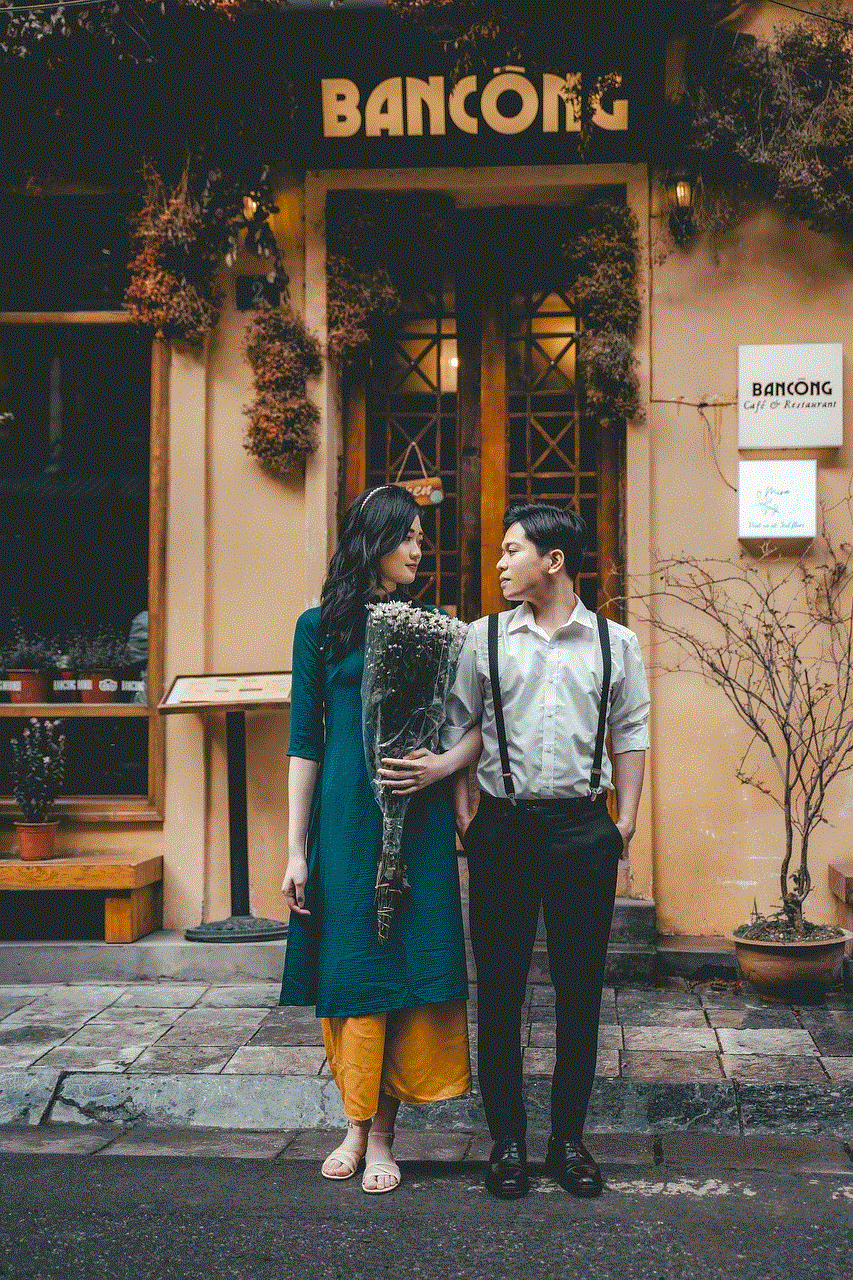pick on me meaning
The phrase “pick on me” can evoke a range of emotions depending on who is saying it and in what context. For some, it may bring up feelings of vulnerability and being the target of bullying or harassment. For others, it may be a playful invitation for teasing or joking around. In this article, we will explore the meaning of “pick on me” and how it can impact individuals and relationships.
To start, let’s define the phrase. “Pick on me” typically refers to someone who is being singled out for criticism, teasing, or ridicule. It can also be used as a way to invite someone to tease or joke with you in a lighthearted manner. The phrase can be used by both children and adults, and in various settings such as school, work, or within families and friendships.
The negative connotation of “pick on me” is often associated with bullying. According to the National Center for Education Statistics, 20.8% of students reported being bullied at school during the 2017-2018 school year. This can include verbal or physical harassment, as well as cyberbullying. Being the target of bullying can have serious consequences for a person’s mental and emotional well-being. It can lead to feelings of isolation, low self-esteem, anxiety, and even depression.
In addition, being picked on can also have long-term effects on a person’s self-confidence and relationships. Those who have been bullied may struggle with trusting others and may be hesitant to form new connections. They may also have difficulty standing up for themselves and setting boundaries in relationships.
On the other hand, “pick on me” can also be used in a more playful and lighthearted manner. It can be a way for friends to bond and build camaraderie through teasing and jokes. This type of teasing is often referred to as “banter” and is considered a form of social interaction. It can help strengthen relationships and create a sense of belonging within a group.
However, even in a playful context, the phrase “pick on me” can still have negative implications. It can be a subtle way of putting oneself down and seeking validation from others. This type of behavior can be damaging to one’s self-esteem and can create a pattern of seeking external approval to feel good about oneself.
In some cases, individuals may use the phrase “pick on me” as a way to deflect criticism or avoid taking responsibility for their actions. This can be seen as a form of manipulation and can cause strain in relationships, especially if the person is constantly seeking attention and validation from others.
So why do some individuals seem to invite others to pick on them? It could stem from a lack of self-confidence and a desire to fit in with a group. They may believe that if they make themselves the target of jokes, they will be accepted and liked by others. However, this behavior can backfire and lead to further isolation and feelings of inadequacy.
In addition, some individuals may use “pick on me” as a defense mechanism. By making themselves the target of jokes and teasing, they can avoid facing their own insecurities and vulnerabilities. This can be a way of masking their true feelings and avoiding dealing with them.
It is important to note that there is a difference between playful banter and malicious teasing. While playful teasing can be a form of bonding and social interaction, malicious teasing is meant to hurt and belittle someone. It is important to be aware of the impact our words can have on others and to always consider the feelings of those around us.
So, how can we handle being the target of teasing or bullying? The first step is to recognize that it is not your fault. No one deserves to be bullied or picked on, and it is not a reflection of your worth as a person. It can be helpful to talk to someone you trust about what you are experiencing and to seek support from friends and family.
It is also important to stand up for yourself and set boundaries. Let the person know that their behavior is not acceptable and that you will not tolerate being treated this way. If the situation persists, it may be necessary to seek help from a teacher, supervisor, or authority figure.
On the other hand, if you find yourself using the phrase “pick on me” as a way to seek attention or validation, it may be helpful to work on building your self-confidence and self-worth. This can be done through positive self-talk, setting and achieving goals, and surrounding yourself with supportive and encouraging people.
In conclusion, the meaning of “pick on me” can vary greatly depending on the context in which it is used. While it can be a form of playful banter among friends, it can also have negative connotations and be associated with bullying and low self-esteem. It is important to be aware of the impact our words can have on others and to always treat others with kindness and respect. If you or someone you know is being bullied, remember to speak up and seek support from those around you.
youtube block channel
YouTube is undoubtedly one of the most popular platforms for video content, with millions of users logging in every day to watch their favorite videos. However, there may be times when a user may come across a channel that they find offensive or inappropriate for their viewing. Fortunately, YouTube has a feature that allows users to block specific channels from appearing in their feed. In this article, we will discuss how to block a channel on YouTube and the reasons why someone may choose to do so.
Before we dive into the specifics of blocking a channel, it is important to understand what it means to block a channel on YouTube. When a user blocks a channel, it means that the videos from that channel will no longer appear in their recommendations or search results. This feature is particularly useful for parents who want to restrict their children’s access to certain channels or for people who find certain content offensive.
Now, let’s take a look at the steps to block a channel on YouTube. The process is relatively simple and can be done on both the website and the mobile app. On the website, users can block a channel by clicking on the three dots next to the video thumbnail and selecting “Block channel” from the drop-down menu. On the mobile app, users can block a channel by tapping on the three dots next to the video and selecting “Block” from the options.
Once a channel is blocked, the videos from that channel will no longer appear in the user’s recommended feed, but the user may still see the channel’s videos if they are subscribed to it. To completely remove the channel from their feed, users can also choose to unsubscribe from the channel. Additionally, users can unblock a channel at any time by going to their “Settings” and selecting “Blocked channels.”
Now, let’s discuss the reasons why someone may choose to block a channel on YouTube. One of the most common reasons is offensive or inappropriate content. With the vast amount of content available on YouTube, it is inevitable that some videos or channels may contain content that some users may find offensive or disturbing. In such cases, blocking the channel is an effective way to prevent such content from appearing in the user’s feed.
Another reason for blocking a channel may be to restrict children’s access to certain videos. YouTube has a strict policy against inappropriate content, but some channels may still slip through the cracks. By blocking these channels, parents can ensure that their children are not exposed to any inappropriate content while browsing YouTube.
Moreover, some channels may have a continuous stream of clickbait or misleading content, which may annoy or frustrate users. In such cases, blocking the channel is a way to avoid being bombarded with irrelevant or misleading videos. This also allows users to have a more personalized and enjoyable viewing experience.
In addition to the above reasons, some users may also choose to block a channel because they simply do not like the content being produced. Everyone has their own preferences, and some channels may not align with a user’s interests. In such cases, blocking the channel allows users to curate their feed and only see content that they enjoy.
However, it is important to note that blocking a channel may not be the best solution in all cases. Sometimes, a user may come across a channel that they find offensive, but instead of blocking it, they may choose to report the channel to YouTube. This helps the platform to review the content and take appropriate action, such as removing the video or even terminating the channel.
In conclusion, blocking a channel on YouTube is a useful feature that allows users to have more control over their viewing experience. It is a simple and effective way to avoid offensive or inappropriate content, restrict children’s access, and personalize one’s feed. However, it is important to use this feature responsibly and not abuse it as it may hinder the growth of smaller, lesser-known channels. Ultimately, the choice to block a channel lies with the user and their personal preferences.
what is boujie mean



Boujie, also spelled as boujee or bougy, is a term that has gained popularity in recent years, especially in the world of social media and pop culture. It is a slang term that originated from African American Vernacular English (AAVE) and is used to describe someone or something that is luxurious, extravagant, or high-class. The term has become so prevalent that it has even been added to the Oxford English Dictionary in 2019, solidifying its place in mainstream vocabulary.
However, the meaning of boujie goes beyond just describing luxury or extravagance. It has a complex and layered connotation that has sparked debates and discussions among linguists, sociologists, and even the general public. From its origins to its evolution and usage in modern times, boujie is a term that has a fascinating history and a significant impact on our culture. In this article, we will delve deep into the meaning of boujie and explore its different dimensions.
Origins of Boujie
To understand the meaning of boujie, one must first understand its origins. The term is believed to have originated in the African American community, particularly in the southern United States, in the early 2000s. It is derived from the French word “bourgeois,” which means middle-class, but in AAVE, it has taken on a different meaning. In the African American community, the term bourgeois is associated with the upper class, and it is often used as a term of admiration or envy.
The word “bougie” also has its roots in the French word “bougie,” which means candle. In AAVE, the term is used to refer to someone who is pretentious, snobbish, or trying too hard to be upper class. It is often used to describe individuals who have newly acquired wealth and are eager to flaunt it through their material possessions and lifestyle.
As the term evolved and became popular, it underwent a slight alteration in spelling, and the “g” was replaced with a “j.” This change in spelling has been attributed to the influence of hip-hop culture and rap music, where the letter “j” is often used to add flair or create a unique style.
Boujie in Pop Culture
In the early 2000s, the term boujie was primarily used in the African American community and was not well-known outside of it. However, with the rise of social media and the influence of hip-hop culture on mainstream media, boujie gained widespread popularity. It became a popular hashtag on platforms like Instagram and Twitter , and it was used to describe anything that was considered high-class, luxurious, or extravagant.
The term became even more prominent in 2014, with the release of the song “Fancy” by rapper Iggy Azalea, featuring Charli XCX. The song’s lyrics, “You already know, I’m in the fast lane/ From LA to Tokyo/ I’m so fancy/ Can’t you taste this gold?” perfectly embody the essence of boujie. The music video, which featured Azalea living a lavish and extravagant lifestyle, further popularized the term and solidified its place in pop culture.
Boujie has also been used in various television shows and movies, often as a punchline or to describe characters who are excessively wealthy or flashy. In the popular reality show “Keeping Up with the Kardashians,” the term has been used to describe the Kardashian sisters’ lifestyle, who are known for their opulent and extravagant lifestyle. The use of boujie in popular culture has further cemented its association with luxury and high-class living.
The Complex Connotation of Boujie
While boujie is often used to describe luxury and extravagance, its connotation is not always positive. The term has a complex and layered meaning, and its usage can vary depending on the context and the intention behind it. Some people use boujie as a compliment, while others use it to mock or criticize someone for being pretentious or materialistic.
One of the most significant debates surrounding the term boujie is its association with social class and race. As mentioned earlier, the term has its roots in the African American community, where it was used to describe the upper class. However, in mainstream media and pop culture, the term has often been associated with white privilege and wealth, leading to accusations of cultural appropriation.



Critics argue that the term has been co-opted by white people, who use it to describe their luxurious lifestyle without acknowledging its origins in the black community. They argue that by using the term boujie, white people are erasing the term’s cultural significance and the struggles of the African American community.
On the other hand, some argue that the term has evolved and transcended its racial connotation. They argue that boujie is now used to describe anyone, regardless of their race or social class, who is excessively materialistic or flaunts their wealth. They also point out that the term has been embraced by people of all races and backgrounds, and it is no longer exclusively associated with the African American community.
The Evolution of Boujie
As with any slang term, the meaning of boujie has evolved over the years. While it was initially used to describe someone who is excessively materialistic, it has now taken on a broader meaning. Today, boujie is used to describe anything that is considered high-class, luxurious, or extravagant, from fashion and beauty to travel and lifestyle.
The term has also undergone a change in its usage, with people now using it as a verb, noun, and adjective. For example, one can say, “She’s so boujie,” to describe someone who is pretentious, or “That dress is so boujie,” to describe a luxurious dress. The term has also given rise to its derivatives, such as “boujiness” and “boujie-ness,” which are used to describe the quality or state of being boujie.
Boujie has also become a part of everyday language, with people using it in casual conversations and social media posts. It has become a way for people to express their admiration for luxurious things or to make fun of someone’s extravagant lifestyle. The term has also become a way for people to bond and connect over shared experiences of luxury and extravagance.
The Impact of Boujie on Culture
Boujie has had a significant impact on our culture and society. It has become a part of our everyday vocabulary, and its usage has transcended race, gender, and social class. The term has also given rise to a new lifestyle trend, where people strive to live a luxurious and extravagant lifestyle.
However, the widespread usage of boujie has also led to the commodification of luxury. In an attempt to appear boujie, many people have gone into debt or resorted to unethical means to acquire material possessions and maintain a lavish lifestyle. This has led to a culture of materialism and consumerism, where people’s worth is often measured by their possessions and not their character or values.
Moreover, the association of boujie with white privilege and wealth has also sparked debates and discussions on issues of race and social class. The term has brought to light the disparities and inequalities that exist in our society and has sparked conversations on cultural appropriation and the erasure of black culture.
Conclusion
In conclusion, boujie is a slang term that has gained widespread popularity in recent years. Its origins can be traced back to the African American community, where it was used to describe the upper class. However, with the rise of social media and pop culture, the term has evolved and taken on a broader meaning. Today, boujie is used to describe anything that is considered high-class, luxurious, or extravagant.
The term has a complex and layered connotation, and its usage can vary depending on the context and the intention behind it. While some use it as a compliment, others use it to mock or criticize someone for being excessively materialistic. It has also sparked debates and discussions on issues of race, social class, and cultural appropriation.



Boujie has become a part of our everyday language, and its impact on our culture and society is undeniable. It has given rise to a new lifestyle trend, but it has also led to the commodification of luxury and materialism. As with any slang term, it is ever-evolving, and only time will tell how it will continue to shape our language and culture in the future.